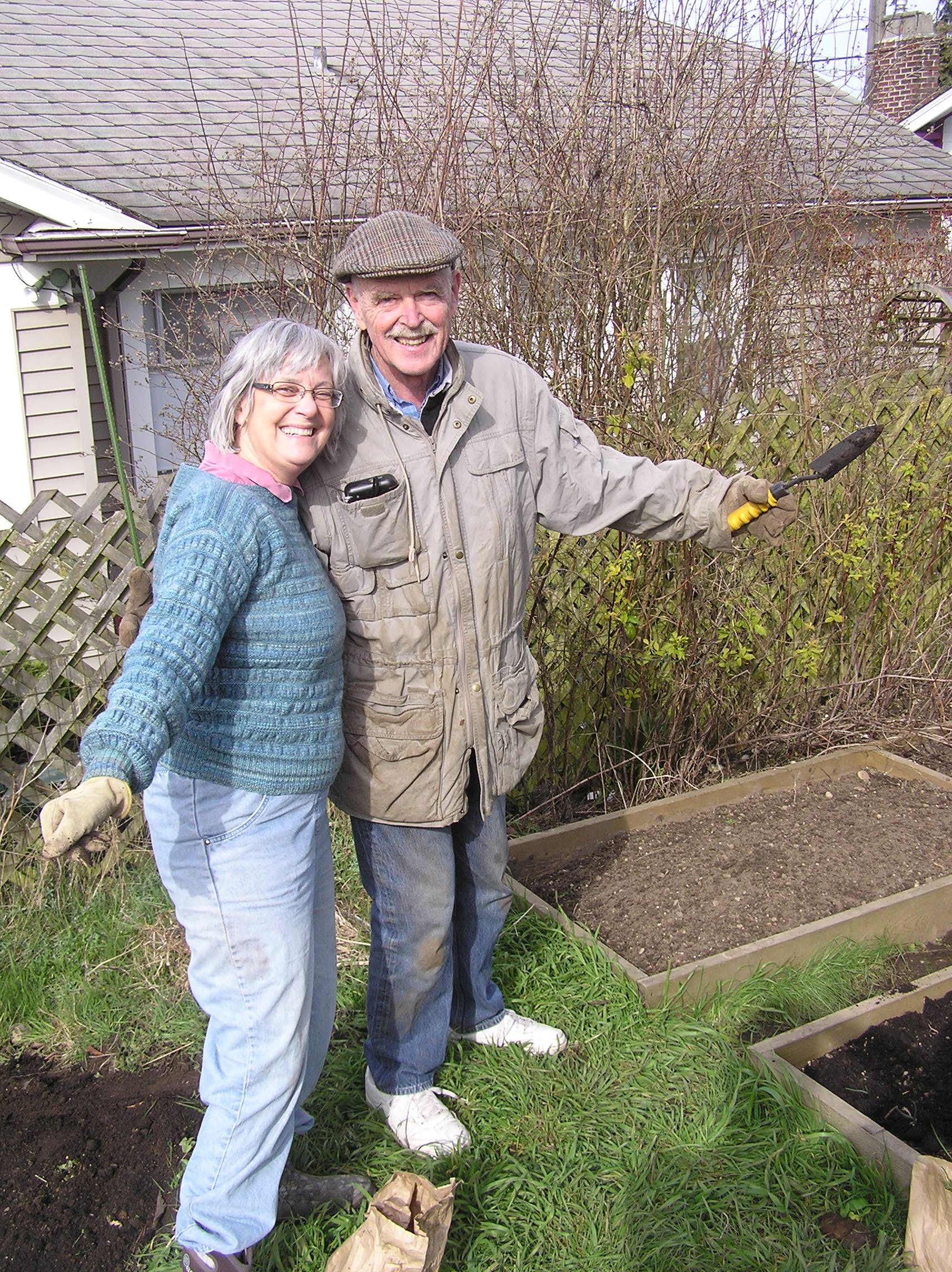On Wednesday I started teaching a class at St Andrew’s Episcopal Church here in Seattle on Spirituality and Gardening. I always learn so much from what others share. This time some of our discussion revolved around how overwhelming getting underway in the garden can be. I know the feeling. I used to try to do it all myself and as I got busier (partly because of teaching these seminars) I found that both the garden and my spiritual wellbeing suffered.
I don’t think gardening is meant to be done alone. We all know the saying It takes a village to raise a child. well I think we should create another saying: It takes a community to run a garden.
On Saturday we will hold our first garden day at the Mustard Seed House and so I have been busy recruiting helpers. As someone commented to me this last week: It is becoming a mini community garden. We want to make sure this year that there is plenty to share not just amongst the garden helpers but also to the broader community. Its a great way to increase our gardening expertise and get a few home grown vegetables for those who do not have their own garden. This will be mainly a planning time & getting ready to plant (inside not out). If you would like to join the team let me know.
This is one way to grow food that can be very effective in an urban area. It is a win win situation – some of us have more room than we can effectively garden, others don’t have any room at all. Some of us have gardened for years, others are novices. We can all learn from each other and have some great fellowship in the process. There are a number of more formal programs like this city slicker farms that teach people to garden in their own yards. Sharing backyards is an organization that helps connect people who want to garden with places to do it. And here is a great article that lists a number of yard sharing organizations
To me, a less inviting but also good option is to offer your backyard for someone else to garden, and get a small share of the produce. (called lazy locavores by some)
Another possibility is to form a garden co-op. Gardening together is always more fun. Get a group of gardeners together, plan what will grow best in each of your gardens and work out a schedule so that you spend time together in each of the gardens involved. This is a little different from a community garden, a term which I think can be a misnomer because people often have their own patches and do very little together.
To live sustainably into the future we need to learn to co-operate and to form community. I know there are a lot of other ways to garden together and would love to hear your suggestions.

